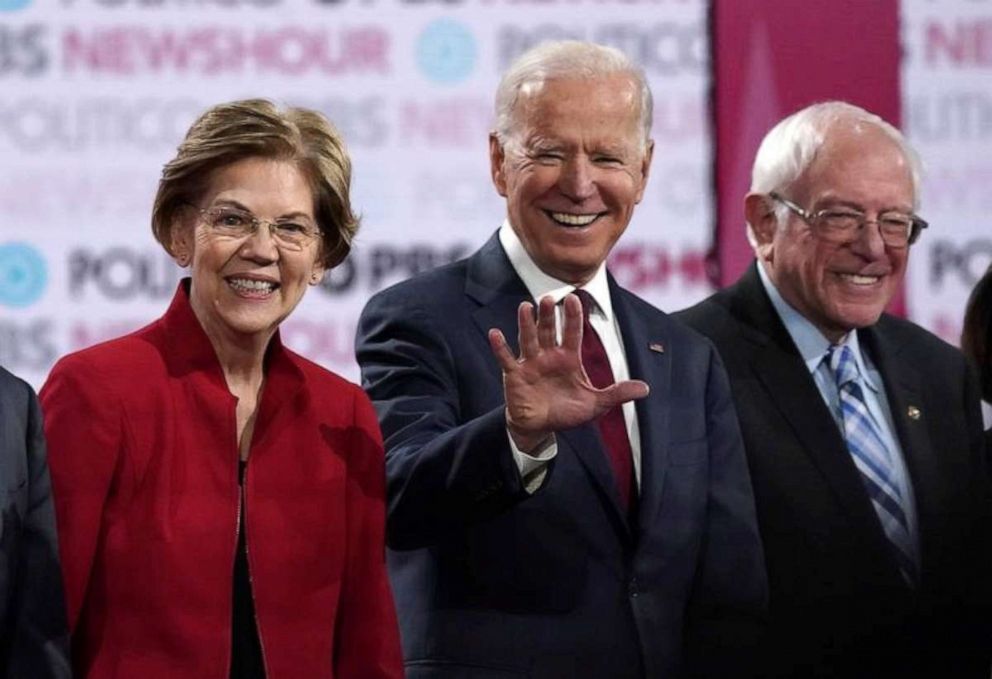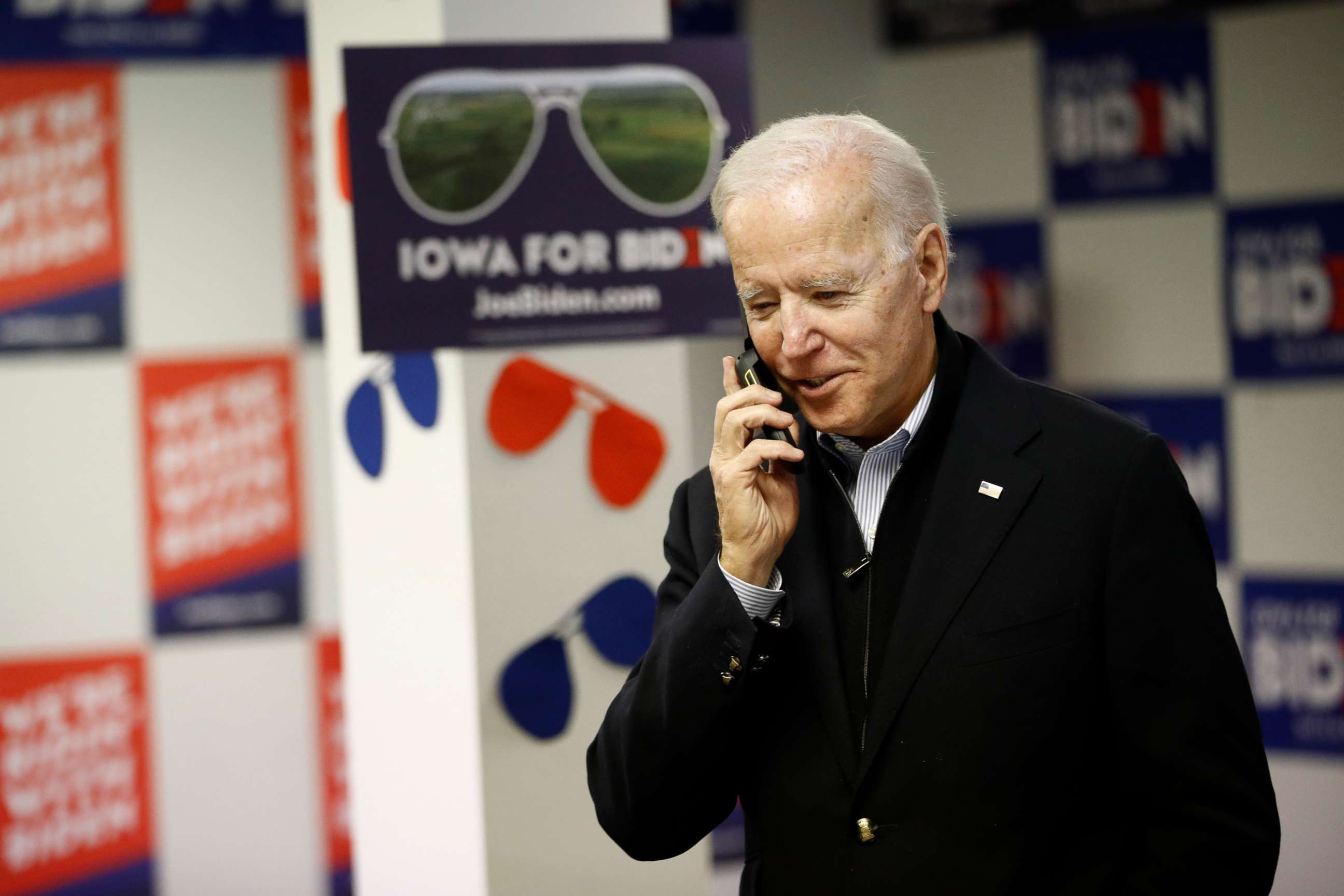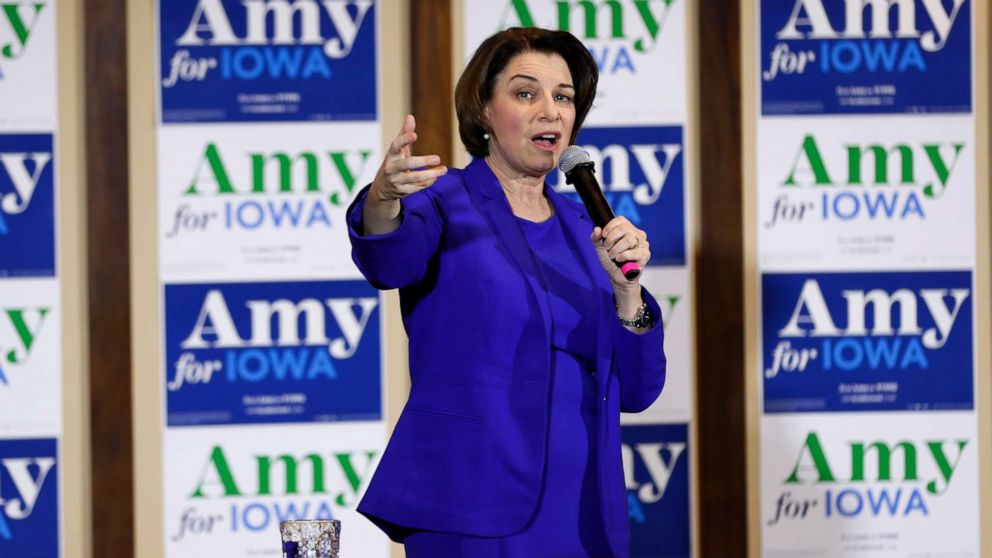3 weeks before Iowa caucus, candidates' closing arguments come into focus
The Iowa caucus, the first in the country, will be Feb. 3.
Sen. Amy Klobuchar's campaign manager said aptly that the start of the closing stretch begins on the debate stage Tuesday night in Des Moines, Iowa.
The debate, the first in the new year and the last before the Iowa caucuses on Feb. 3, will be a chance for the top-tier Democratic presidential primary candidates to both reset their campaigns and present their closing salvos.
Over the weekend, voters across the state saw a preview of where the campaigns are headed over these last few weeks.
Former Vice President Joe Biden doubled down on his White House experience. According to his campaign, his new campaign ad launched last Friday was designed to again make the argument that Biden is the best candidate to be commander in chief on day one, because of his unmatched foreign policy credentials.
The campaign has retooled previous ads to include the recent events unfolding between the United States and Iran. His team argued the missile strikes launched by Iran against U.S. forces in Iraq demonstrated the need for someone tested like Biden.
"People coming home to Joe, as we get closer and it gets more serious and the world gets more dangerous, this is the candidate that at least my friends are gravitating toward," Iowa Attorney General Tom Miller told reporters and volunteers Monday at a campaign stop after endorsing Biden. Miller added that he planned to work as a surrogate for Biden in the state in the run up to caucus day.

Vermont Sen. Bernie Sanders' campaign over the weekend balked at the idea that foreign policy is one of Biden's strengths.
"He has experience making all the wrong choices, when he was in position to make those choices," one Sanders' staffer told ABC News off the cuff at an event in Iowa.
"Unlike 23 of his Senate colleagues who got it right, Biden made explicitly clear that he was voting for war [in Iraq in 2003], and even after the war started, he boasted that he didn't regret it. Bernie Sanders saw the same information and had the judgment to vote against the Iraq War. That's the kind of commander in chief we need," Sanders campaign wrote in a formal statement, previewing a line of attack the senator will likely continue on the debate stage against the former vice president.
In the closing weeks before Iowa, Sanders has been driving home his "Medicare for All" health care proposal. At most events these days, he has taken time to open up the floor and ask people in his audience to tell the room exactly how much they currently pay in premiums, deductibles and copays. He has then explained, bit by bit, the math and taxes in his proposal.
Sanders has taken considerable heat from his primary opponents about his proposal, which would fundamentally reshape health insurance in America and dramatically expand the size of the federal government. By walking through the costs people are currently paying for health care, Sanders has attempted to make the argument -- room by room -- that while his plan would be expensive for tax payers, the current system is expensive for Americans, too.
"It's playing offense by playing defense," Bill Neidhardt, Sanders' deputy state director for Iowa, told ABC News.

Transitioning in the new year, Sen. Elizabeth Warren, D-Mass., has put a new emphasis on party unity in her stump speeches, as has her surrogates.
"We cannot nominate someone who takes big chunks of the Democratic coalition for granted," Warren told reporters Sunday. "We need someone who will bring our party together. We need someone who will excite every part of the Democratic Party, someone who will -- who will be there. Someone that every Democrat can believe in."
Her Iowa campaign team confirmed that a unity message is part of the strategy in the final weeks.
"She can bring this party together. She can unify Democrats to defeat Donald Trump in November of 2020, so that we have a new president with a stronger America, a better America -- America where all of us can succeed. That depends on you," former Housing Secretary Julian Castro said, introducing Warren on Sunday after recently endorsing her upon dropping out of the race.
The unity message comes with the gloves now off between Warren and Sanders -- the two top progressive contenders who've held an armistice throughout the primary thus far. No longer. The two have been forced to contend with brewing friction, underscoring how party unity may still be far on the horizon.

According to Warren's campaign, the senator also plans to hammer home the idea that all of her policy proposals have one core theme: fighting corruption.
There has been considerable buzz on the ground in Iowa that Klobuchar, the Minnesota senator, may be a dark horse in the caucus. At her events over the weekend, she reiterated her Midwest roots.
"At the end of the day, people of Iowa are going to want to see someone who reminds them of someone who could represent the state of Iowa, which is the senator from next door: Amy," Justin Buoen, Klobuchar's campaign manager told ABC News Sunday.
ABC News' Sasha Pezenik contributed to this report.






